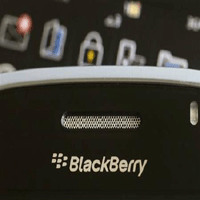  John Stuart has been chained to his BlackBerry for years, first as a systems manager for Wall Street bank Morgan Stanley and then as chief information officer for Beverly Hills Wealth Management.
But this week, Stuart ordered an iPhone from Apple Inc, ending his 7-year relationship with BlackBerry maker Research in Motion.
His move highlights how even security-conscious banks and IT managers, who have been among RIM''s most loyal customers, are starting to defect, lured by improvements in rivals that challenge the BlackBerry's much-vaunted safety features.
"RIM has always been at the top of their game when it comes to device management. Apple has caught up," Stuart said.
The BlackBerry has been losing ground in the business market to the iPhone and, to a lesser extent, devices running Google Inc's Android software, as companies gradually allowed their employees to choose their own mobile devices.
This week's massive BlackBerry network outage, which spanned four continents, is likely to speed up RIM's decline, analysts said.
Many banks already allow employees to choose their devices and the BlackBerry outage is likely to push more in that direction, according to Julie McNelly, an analyst with Aite Group, who advises financial institutions on data security.
"The barn door is already open. Most of the horses are already gone," she said. "This could potentially accelerate the process."
The BlackBerry used to own the corporate market because companies believed RIM was best at protecting enterprise data and prevent the theft of corporate secrets.
The outage highlights RIM's Achilles heel: the fact that all BlackBerry messages are routed through its own data centers means information is more secure, but it also creates a single point of potential failure.
Messages sent through phones from Apple and other vendors do not travel through any central network, so they do not have that same weakness.
While that has meant rival phones were less secure in the past, many security experts say the iPhone has caught up to the BlackBerry, thanks to improvements in Apple's latest iOS software. And for Android phones, a proliferation of third party security software have also helped.
"In most ways, iOS is at least as secure as BlackBerry, namely in malware prevention, exploit prevention, etc.," said Charlie Miller, principal research consultant with Accuvant and a highly regarded expert on mobile security.
He said the BlackBerry is still superior in data encryption and manageability, but added that "reliability obviously is a problem recently for Blackberry."
CONSUMERIZATION
Apple is a big winner when workers get to pick their own phones, a trend known as the consumerization of IT. The iPhone 4S hit store shelves on Friday and thousands of people lined up around the world to get it.
Companies can save money when they let employees buy their own phones and pay their own monthly bills. All IT managers have to do is install software that makes it possible for employees to securely access corporate networks.
At Credit Suisse, which only started this year to open its network to Apple and Android devices, about one-third of its 25,000 BlackBerry users have already switched phones.
That has saved the European bank millions of dollars, according to Stephen Hilton, Credit Suisse's global head of technology infrastructure services.
"We are seeing very rapid adoption of this 'consumer technology' platform," Hilton said. "I suspect this (outage) would be another reason why people may reconsider." |